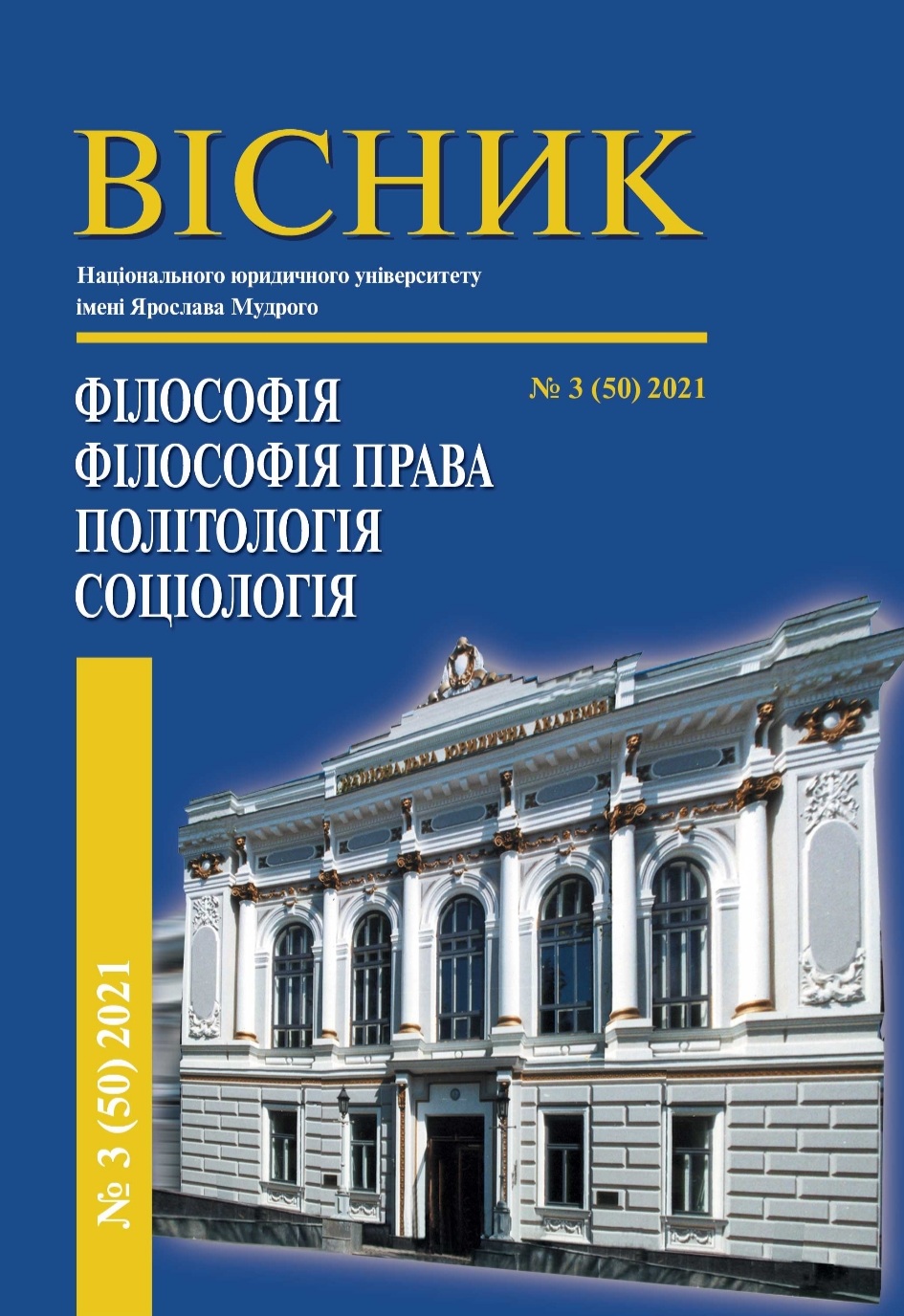ГЕРМЕНЕВТИКА ТІЛЕСНОСТІ Г. ПЛЕСНЕРА У КОНТЕКСТІ РОЗВИТКУ НЕВЕРБАЛЬНИХ ПРАКТИК ЛЮДСЬКОЇ КОМУНІКАЦІЇ
DOI:
https://doi.org/10.21564/2663-5704.59.289671Ключові слова:
Плеснер, невербальні комунікативні практики, тілесна екзистенція, теорія сміху та плачу, ексцентрична позиціональністьАнотація
У статті досліджуються окремі аспекти філософсько-антропологічної теорії сміху та плачу Гельмута Плеснера у контексті розвитку невербальних практик людської комунікації. Розкривається евристичний потенціал його герменевтичного вчення про специфічні форми людської виразності, в якому філософ пропонує власне бачення герменевтики, у першу чергу, як герменевтику тілесності.
Посилання
Barthes, R., Duisit, L. (1975). An Introduction to the Structural Analysis of Narrative. On Narrative and Narratives. Vol. 6, 2, 237–272. doi: https://doi.org/10.2307/468419
Foucault, M. (1972). Archaeology of Knowledge and the Discourse on Language. New York: Pantheon Books.
Baudrillard, J. (2016). The Consumer Society: Myths and Structures. London: SAGE Publications Ltd.
Moran, D. (2018). Intentionality, lived experience, bodily comportment, and the horizon of the world. In D. Zahavi (Ed.). The Oxford handbook of the history of phenomenology. Oxford: Oxford University Press.
Murillo, J.I. (2016). Body, Time and Subject. Biology and Subjectivity. Historical-Analytical Studies on Nature, Mind and Action. Vol. 2. Springer International Publishing Switzerlander.
Wehrle, M. (2020). Being a body and having a body. The twofold temporality of embodied intentionality. Phenomenology and the Cognitive Sciences. 19, 499–521. doi: https://doi.org/10.1007/s11097-019-09610-z
Homilko, O.Ye. (2007). Fenomen tilesnosti. Extended abstract of candidate’s thesis. Kyiv [in Ukrainian].
Homilko, O. (2001). Metafizyka tilesnosti: kontsept tila u filosofskomu dyskursi. Kyiv: Naukova dumka [in Ukrainian].
Kosiak, V.A. (2012). Epistemolohiia liudskoi tilesnosti. Sumy: VTD «Universytetska knyha» [in Ukrainian].
Kosiak V.A. (2018). Liudyna ta yii tilesnist u riznykh formakh kultury: navch. posib. Sumy: «Universytetska knyha» [in Ukrainian].
Kultaieva, М. (2020). Homo Digitalis, Digital culture and Digital Education: Explorations of Philosophical Anthropology and of Philosophy of Education. Philosophy of Education − Philosophy of illumination, 26 (1), 8−36 [in Ukrainian].
Medviedieva, N.S. (2005). Problema spivvidnoshennia tilesnosti i sotsialnosti v liudyni i suspilstvi. Extended abstract of candidate’s thesis. Kyiv [in Ukrainian].
Plessner, H. (1975). Die Stufen des Organischen und der Mensch. Einleitung in die philosophische Anthropologie. Berlin-New York: W-G [in German].
Plessner, H. (1976). Die Frage nach der Conditio humana. Suhrkamp [in German].
Pietrowicz, S. (1992). Helmuth Plessner: Genese und System seines philosophisch-anthropologischen Denkens. Freiburg; München: Verlag Karl Alber [in German].
Plessner, H. (1982). Lachen und Weinen. Eine Untersuchung der Grenzen menschlichen Verhaltens. 1941. Plessner H. GS. Bd. VII. Ausdruck und menschliche Natur. Frankfurt a. M.: Suhrkamp Verlag [in German].



